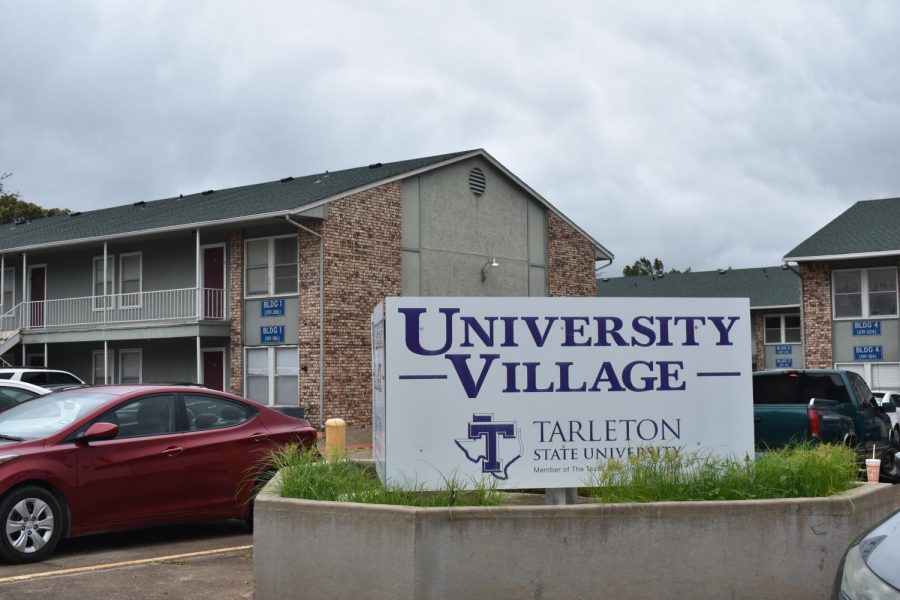University Village closing in December
The University Village
October 4, 2018
The Department of Facilities and Special Events has moved on the decision to have University Village close its doors to all residents on Dec. 21,2018. This decision was made after much consideration following a report from the State Fire Marshal submitted on Aug. 23.
“The Thursday we were allowing residents to start moving in for the fall (semester), the fire marshal gave us a final assessment on University Village,” said Ben Kunze, executive director of Residence Life, Facilities, and Special Events. “It basically said ‘You have permission to use it through December 31.”
Kunze explained that the final assessment included the state fire codes that University Village did not meet.
“Some of the codes that they identified are that each building itself has to have a fire detector,” Kunze explained. “University Village does have one per room but the fire alarms themselves don’t tie back to a centralized panel. There are five buildings (within University Village) that would need to be brought up to code so there are five different panels and five different systems that would take place there to meet that code.
“There was the walkway on the second floor. The stairwells (are) in the middle and because of their location they would have to be removed and then have two stairwells in place on each end. When you walk up that (existing) stairwell, and you get on that second floor landing if you turn to the left or to your right the end of the railing area is over 20 feet. By code, they won’t allow a dead end any longer than 19 or 20 feet.
“There was also the replacement of the second floor windows to meet state fire code which is they have to be fire rated. (We would have) to replace those as well as the first…floor windows so that’s the whole facility.”
With the various violations of the state fire code, Kunze explained that it was due to University Village not having to follow such code when it was built but now had to follow it as a result of now being property of the State of Texas.
“In 2014, University Village was purchased as part of the Integrity Residence Hall Projector, the P3 project we have there,” said Kunze. “In 2014 and prior, University Village apartments was subject to Municipal Code from a fire marshal standpoint.”
Kunze explained that the apartments met Municipal Fire Code as established by the City of Stephenville and overseen on for-profit apartments such as The Grove Student Apartments and Mustang Ranch Student Apartments. Prior to being purchased by Tarleton State University, University Village was owned and operated by a private apartment rental company.
“As soon as we purchased University Village, it became subject to the State Fire Code rather than municipal fire code,” Kunze said.
As a result, it was discovered that University Village did not meet State Fire Code as established by the State of Texas and overseen on State property.
“(When the Fire Marshal) came back to do his residential inspection, which was in November 2017, he walked most of the campus but did not make it to University Village. (The Fire Marshal and his colleagues) split their visit up into two sections because of the number of residence halls they had to walk.”
It was because of the split visit that it was much later that the fire marshal noticed the State Fire Code violations in University Village. He returned in January – February 2018 and walked University Village where he discussed some of the areas where it did not meet the same code as what the state required.
Kunze said that they received an official document from the state fire marshal during the summer of 2018 which detailed the state fire code violations found during the residential inspection. Within that report, Kunze pointed out how the clearance to continue to occupy University Village was not included in the write-up. The official verdict on University Village did not arrive until August 23.
“There’s quite a few code adjustments that would need to bring up to speed and when you look at the financial obligations to make sure those codes are brought up to case, it was almost more than the buildings physically were worth,” said Kunze. “By itself, the fire code and the stipulations to bring it to and the financial investment the university would have to put towards it, it makes more sense to use the money to purchase the facility from the P3 contract we have and then have it to ourselves to then do something else with that land.”
The finances was not the only factor that was considered.
“You’d think about the experience of the residence,” Kunze explained. “Having all that construction taking place overhead. Be it the families, little children, or a student trying to study. This (construction project) isn’t something that we would be able to (work on and off). In order to get it reoccupied we’d have to do it solid until it’s completed.”



